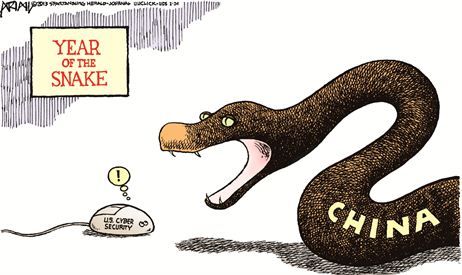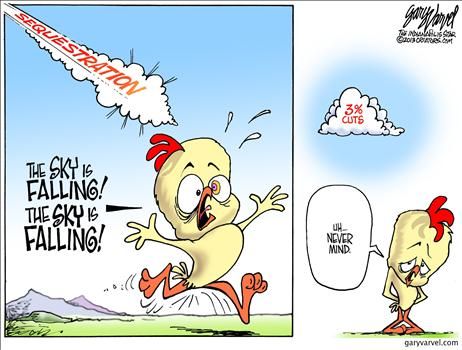This is a little long but so very informative and a must read - in fact, this is something to make a copy of and stick on one's refrigerator, and look at each day to remind yourself of just who the progressive socialist liberal Democrat are and how their history made them who they are today.
20 Of The Most Embarrassing Moments In The History Of The Democrat Party
John Hawkins Feb 23, 2013
For example, one will virtually never hear that the Palmer Raids, Prohibition, or American eugenics were thoroughly progressive phenomena. These are sins America itself must atone for. Meanwhile, real or alleged “conservative” misdeeds — say McCarthyism — are always the exclusive fault of conservatives and a sign of the policies they would repeat if given power. The only culpable mistake that liberals make is failing to fight “hard enough” for their principles. Liberals are never responsible for historic misdeeds because they feel no compulsion to defend the inherent goodness of America. Conservatives, meanwhile, not only take the blame for events not of their own making that they often worked the most assiduously against, but find themselves defending liberal misdeeds in order to defend America herself. -- Jonah Goldberg
1) The Trail of Tears (1838): The first Democrat President, Andrew Jackson and his successor Martin Van Buren, herded Indians into camps, tormented them, burned and pillaged their homes and forced them to relocate with minimal supplies. Thousands died along the way.
2) Democrats Cause The Civil War (1860): The pro-slavery faction of the Democrat Party responded to Abraham Lincoln's election by seceding, which led to the Civil War.
3) Formation of the KKK (1865): Along with 5 other Confederate veterans, Democrat Nathan Bedford Forrest created the KKK.
4) 300 Black Americans Murdered (1868): "Democrats in Opelousas, Louisiana killed nearly 300 blacks who tried to foil an assault on a Republican newspaper editor."
5) The American Protective League and The Palmer Raids (1919-1921): Under the leadership of Woodrow Wilson, criticizing the government became a crime and a fascist organization, the American Protective League was formed to spy on and even arrest fellow Americans for being insufficiently loyal to the government. More than 100,000 Americans were arrested, with less than 1% of them ever being found guilty of any kind of crime.
6) Democrats Successfully Stop Republicans From Making Lynching A Federal Crime (1922): "The U.S. House adopted Rep. Leonidas Dyer’s (R., Mo.) bill making lynching a federal crime. Filibustering Senate Democrats killed the measure."
7) The Tuskegee Syphilis Experiment (1932-1972): Contrary to what you may have heard, Democrats in Alabama did not give black Americans syphilis. However, the experimenters did know that subjects of the experiment unknowingly had syphilis and even after it was proven that penicillin could be used to effectively treat the disease in 1947, the experiments continued. As a result, a number of the subjects needlessly infected their loved ones and died, when they could have been cured.
8) Japanese Internment Camps (1942): Democrat Franklin D. Roosevelt issued an executive order that led to more than 100,000 Japanese Americans being put into
"bleak, remote camps surrounded by barbed wire and armed guards."
9) Alger Hiss Convicted Of Perjury (1950): Hiss, who helped advise FDR at Yalta and was strongly defended by the Left, turned out to be a Soviet spy. He was convicted of perjury in 1950 (Sadly, the statute of limitations on espionage had run out), but was defended by liberals for decades until the Verona papers proved so conclusively that he was guilty that even most his fellow liberals couldn't continue to deny it.
10) The West Virgina Democrat primary is rigged by John F. Kennedy (1960): From an interview with the late, great
Robert Novak.
John Hawkins: You also said that without question, John F. Kennedy rigged the West Virginia Democratic primary in (1960), but that the Wall Street Journal killed the story. Do you think that sort of thing is still occurring with great regularity and do you wish the Journal had reported the story when it happened?
Robert Novak: In my opinion, they should have. They sent two reporters down to West Virginia for six weeks and they came back with a carefully documented story on voter fraud in West Virginia, buying votes, and how he beat Humphrey in the primary and therefore got the nomination. But, Ed Kilgore, the President of Dow Jones and publisher of the Wall Street Journal, a very conservative man, said it wasn’t the business of the Wall Street Journal to decide the nominee of the Democratic Party and he killed the story. That story didn’t come out for many, many years — 30-40 years. It was kept secret all that time.
11) The Bay of Pigs (1961): After training a Cuban militia to overthrow Castro, Kennedy got cold feet and didn't give the men all the air support they were promised. As a result, they were easily defeated by Castro's men and today, Cuba is still ruled by a hostile, anti-American dictatorship.
12) Fire Hoses And Attack Dogs Used On Children (1963): Birmingham, Alabama's notorious Commissioner of Public Safety, Democrat Bull Connor, used attack dogs and fire hoses on children and teenagers marching for civil rights. Ultimately, thousands of them would also be arrested.
13) Stand In The Schoolhouse Door (1963): Democrat George Wallace gave his notorious speech against integrating schools at the University of Alabama in which he said, "
segregation now, segregation tomorrow, segregation forever." 14)
Escalation In Vietnam (1964): Lyndon Johnson dramatically escalated our troops’ presence in Vietnam while he simultaneously put political restrictions in place that made the war unwinnable. As a result, 58,000 Americans died in a war that ultimately achieved none of its aims.
15) Chappaquiddick (1969): The Democrats’ beloved "Liberal Lion" of the Senate, Ted Kennedy ran off the road into a tidal pool with passenger Mary Jo Kopechne in the car. Kennedy swam free and then spent 9 hours plotting how he would reveal the news to the press while she slowly suffocated to death.
16) Democrats Deliver South Vietnam To The North (1975): "In 1975, when there were no Americans left in Vietnam, the left wing of the Democratic Party killed the government of South Vietnam, cut off all of its funding, cut off all of its ammunition, and sent a signal to the world that the United States had abandoned its allies." --
Newt Gingrich
17) The Iranian Hostage Crisis (1979-1981): 52 Americans were held hostage by the government of Iran for 444 days. After Jimmy Carter’s disastrous, failed rescue attempt, the hostages were finally released after Ronald Reagan's inaugural address.
18) Bill Clinton turns down Osama Bin Laden (1996): In
Bill Clinton's own words,
"'Mr. bin Laden used to live in Sudan. He was expelled from Saudi Arabia in 1991, then he went to Sudan. And we’d been hearing that the Sudanese wanted America to start meeting with them again. They released him. At the time, 1996, he had committed no crime against America so I did not bring him here because we had no basis on which to hold him, though we knew he wanted to commit crimes against America.' — Bill Clinton explains to a Long Island, N.Y., business group why he turned down Sudan’s offer to extradite Osama Bin Laden to America in 1996." Had Bill Clinton accepted Sudan's offer, 9/11 would have likely never happened.
19) Bill Clinton was impeached (1998): Clinton became only the 2nd President in American history to be impeached after he lied under oath about his affair with Monica Lewinsky.
20) America loses its AAA credit rating (2011): The United States was first given its AAA credit in 1917, but it couldn’t survive Barack Obama's record breaking spending. In 2011, America
lost its AAA credit rating.


 It didn’t take long to discover some interesting political facts about Central Wisconsin. At that time, with the exception of one lone Republican (then State Representative Jerry Petrowski), our district was dominated by Democrats.
It didn’t take long to discover some interesting political facts about Central Wisconsin. At that time, with the exception of one lone Republican (then State Representative Jerry Petrowski), our district was dominated by Democrats.
